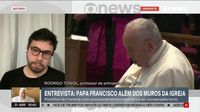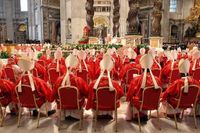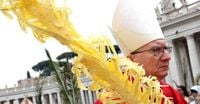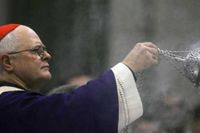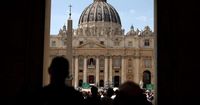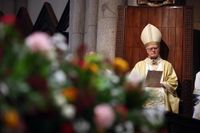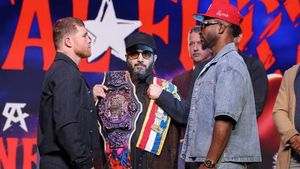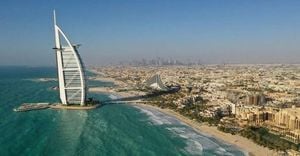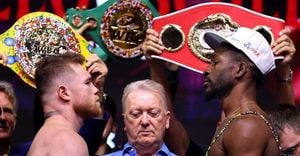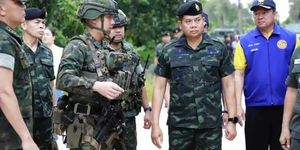The death of Pope Francis on April 21, 2025, has plunged the Catholic Church into a period known as Sé Vacante, a time of mourning and preparation for the upcoming conclave to elect a new leader. As the world watches closely, the College of Cardinals, comprising 135 eligible voters, will gather to deliberate and ultimately select the next pope from a diverse pool of candidates, including several from Latin America, Africa, and Asia.
Among the 138 cardinals under the age of 80, seven are Brazilian, although only six will participate in the conclave due to the exclusion of 87-year-old Raymundo Damasceno, the archbishop emeritus of Aparecida. The remaining Brazilian cardinals include Dom Sérgio da Rocha, the metropolitan archbishop of Porto Alegre, and Dom Leonardo Ulrich Steiner, the archbishop of Salvador, both of whom are considered strong contenders for the papacy.
Dom Sérgio, a Franciscan friar and cardinal since 2013, has served as the president of the National Conference of Bishops of Brazil (CNBB) since 2023. At 64 years old, he is seen as a candidate with significant influence within the Church. Meanwhile, 65-year-old Dom Leonardo has held various high-ranking positions, including auxiliary bishop of Fortaleza and metropolitan archbishop of Brasília. He has been a member of the Council of Cardinals since 2020, which advises the pope on Church governance.
As speculation swirls regarding the next pope, Dom Odilo Pedro Scherer, the archbishop of São Paulo, expressed that the new leader could very well be from Latin America, Africa, or Asia. In an interview shortly after the pope's death, he noted, "No one should be surprised if an African or Asian cardinal is chosen." He emphasized that this diversification reflects the changing demographics and influence within the Church, a shift that has become more pronounced during Francis's papacy.
Dom Odilo, who participated in the 2013 conclave that elected Francis, highlighted the importance of the upcoming election. He stated, "The choice of the pope will be the result of a collective discernment among the cardinals. It is not a prearranged deal but a decision made in a climate of prayer and responsibility for the Church." His remarks underscore the serious and reflective nature of the conclave process, which is shrouded in secrecy until the new pope is announced.
In the lead-up to the conclave, various candidates have emerged, each with their own strengths and weaknesses. Cardinal Pietro Parolin, the current Secretary of State for the Vatican, is considered a strong candidate, with a 20% chance of being elected, according to estimates generated by the AI tool ChatGPT 4.1. Parolin’s diplomatic experience and moderate stance have garnered him favor among many cardinals.
Following Parolin, Cardinal Matteo Maria Zuppi, the archbishop of Bologna, is seen as a continuity candidate with a 16% chance. Known for his humanitarian efforts and diplomatic skills, Zuppi has been involved in peace negotiations in Ukraine, further enhancing his profile as a potential pope.
Cardinal Luis Antonio Tagle from the Philippines is another name to watch, with a 13% chance. Tagle, who has a charismatic and pastoral approach, has been recognized for his commitment to social justice and could bridge gaps between different factions within the Church.
Other notable candidates include Cardinal Peter Turkson from Ghana (9% chance), Cardinal Jean-Claude Hollerich from Luxembourg (8% chance), and Cardinal Sean Patrick O'Malley from the USA (7% chance). Each of these candidates brings a unique perspective and background, reflecting the global nature of the Church.
Interestingly, Cardinal Odilo Scherer himself is listed among the candidates, albeit with a lower 5% chance. Despite his significant role in the Latin American Church, he is viewed as having limited international exposure, which may hinder his chances.
As the conclave approaches, the dynamics within the College of Cardinals will play a crucial role in shaping the future of the Catholic Church. With a diverse group of electors, the potential for an unexpected outcome looms large. Historically, the conclave has produced surprises, as evidenced by the election of popes like John Paul I and John Paul II, who were not initially seen as frontrunners.
Dom Odilo pointed out that the expectations surrounding the next pope are not merely about whether he will be progressive or conservative. He noted, "The concern in choosing the pope is certainly not whether he is progressive or conservative. This is an external concern. The gospel encompasses both perspectives. The next pope will care for the Church and its mission." This statement highlights the nuanced understanding of leadership needed in today's complex world.
The conclave, which will be held in the Sistine Chapel, is expected to convene in about two weeks. The cardinals will enter under an oath of secrecy, and millions of Catholics around the world will await the traditional white smoke signaling the election of the new pope. As the Church navigates this transitional period, the choices made by the cardinals will resonate far beyond the walls of the Vatican, shaping the future of Catholicism in an increasingly diverse and interconnected world.
